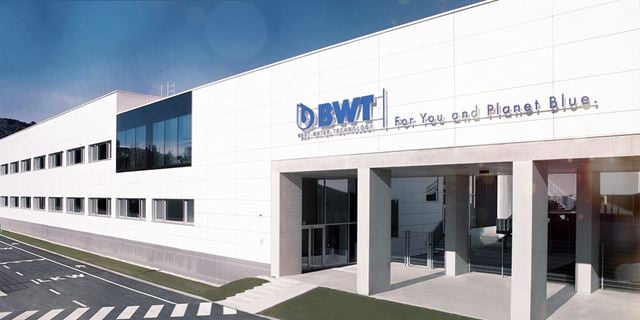The future of zero-emission mobility


BWT strongly believes in hydrogen mobility. For more than two decades now, BWT with it´s subsidiary Fumatech BWT, has been investing in the field of fuel cell membrane technology and started a close cooperation with the Technical University of Delft (Netherlands) in order to support the development of hydrogen mobility.
About Forze Delft
Forze is a team of 50 students, who are studying in different fields at Delft University of Technology. The team specialised in hydrogen electric racing and is indeed the first hydrogen-electric racing team in the world.
The team was founded back in 2007 and initially started with designing and building go-karts using a hydrogen electric drivetrain. With these vehicles they participated in the Formula Zero competition, hence the name ForZe.
In 2012 they built the first full-size hydrogen race car in the D:Dream hall, a building on the TU Delft Campus - which stands for Dream Realization of Extremly Advanced Machines. Competing in the Supercar Challenge 2017 and 2018, the Forze VII was the first hydrogen electric race car to ever participate in an official race against petrol powered cars.
So far, the team has built eight hydrogen race cars. During the 24 Hours Race at the Nürburgring in 2018, the team revealed their latest innovation: The Forze VIII.


What are hydrogen cars?
Taking a look underneath the chassis, let's find out what hydrogen cars actually are and what makes them so special. Comparing a conventional car to a hydrogen car, the difference basically is:
- Conventional car: The energy stored in fuel is converted to mechanical energy using the principle of combustion
- Hydrogen car: The energy stored in hydrogen is converted to electric energy using a fuel cell
This means a hydrogen car is also a kind of electric car, making electricity from hydrogen and oxygen (which is simply taken from the air while driving) in a fuel cell. Inside the fuel cell, hydrogen and oxygen are separated by a proton-conductive membrane. The hydrogen splits up into two protons and two electrons, the protons can diffuse through the membrane. The electrons are not able to pass through, they take the long way, creating electrical energy. The protons and electrons meet each other again at the oxygen side of the membrane, where the protons, electrons and oxygen combine into H2O, pure water. The only emission that is produced is water.
Main advantages of hydrogen cars
BWT and the future of hydrogen
Membrane Technology
Membrane technology has an important role within the BWT Group. Membranes are manufactured by BWT for ‘natural’ use in water treatment. They are an indispensable component in the creation of clean water for all aspects of our lives and are also required to generate and store energy, for example in pioneering fuel cell technology.
With FUMATECH BWT - a subsidiary of the BWT Group and the leading producer of ion exchanger membranes - the company has gained extensive knowledge from over 25 years’ experience in membrane manufacturing and membrane process technology. From the synthesis of the raw and auxiliary materials to the processing of these materials into membranes, right up to their technical application. FUMATECH BWT has earned a particularly high international reputation as a supplier of innovative membranes – the heart of the PEM fuel cell.




Fuel cells for the cars of tomorrow
The potential of fuel cell technology and hydrogen is gaining more and more interest in the modern world. Also in the racing world further steps are taken to underpin the future importance of this highly promising technology: In 2024, the 24 Hours of Le Mans will see for the first time on the starting grid a category dedicated to racing prototypes powered by hydrogen alongside cars with combustion engines. That would be a "world first" and is the most solid example of this endurance aspired future.





